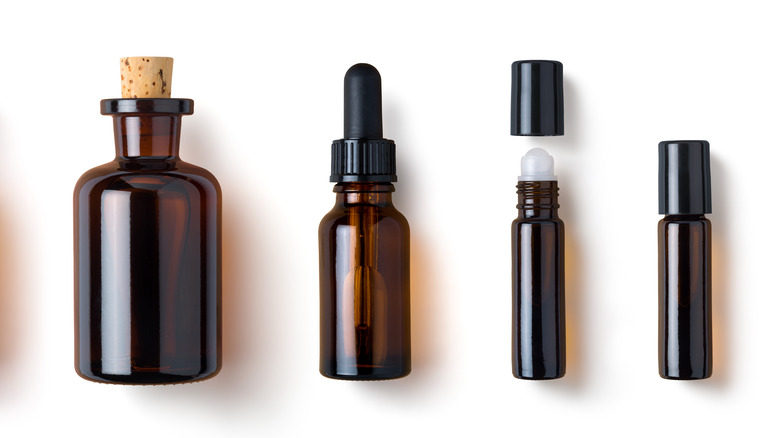Which Essential Oils Are Toxic For Pets?
Essential oils have been all the rave in recent years. These natural plant compounds claim to reduce headaches and inflammation, alleviate pain and anxiety, improve sleep, and even boost hair growth (via Cleveland Clinic).
Though not always available in mainstream stores, it was typically necessary to go to holistic stores if you wanted to get your hands on essential oils. According to Fortune Business Insights, the market is expected to increase from $9.62 billion in 2021 to $18.25 billion by 2028. Yet now you can easily find them anywhere and have a variety of different types delivered right to your home.
Consequently, our pets have been widely exposed to essential oils which can be a problem, as many are dangerous to dogs and cats. Still, many people use essential oils on their pets to help cure various ailments. Before you consider using any essential oils on or near your furry friend, it's wise to learn which ones may be harmful to them.
Keep these essential oils away from dogs
Although certain essential oils may be thought to help dogs in different ways, there still isn't enough proven research to advise owners to use them, according to the American Kennel Club. The AKC says more studies must be done to assert a position on the oils and their benefits.
Essential oils are often used in very small amounts because they are very potent, so careful attention must be given when used on or even near dogs. If an essential oil meant to help your dog's skin irritates it instead, you may have a bigger problem on your hands and your poor pup may suffer even more discomfort, including itchiness and burning. Even scarier is that a very tiny amount of essential oils that are toxic to dogs can cause extreme harm, like liver failure (via Dogs Naturally Magazine).
Some essential oils that are known to be toxic to dogs include anise, cinnamon, citrus, clove, garlic, juniper, pennyroyal, peppermint, pine, sweet birch, tea tree, thyme, yarrow, and ylang ylang (Animal Medical Center of Deer Valley). So, with all of these varieties in mind, it's best to steer clear when you're at the store.
Cats should stay away from these essential oils
Using essential oils if you have cats in your home can be dangerous, as cats don't have the enzyme needed to break down the compounds in them, especially the phenols (via The Spruce Pets). The oils get absorbed into the cat's body at a rapid rate and then are metabolized by the liver. Consequently, the most common area in the body that essential oils impact in cats is the liver. When cats lick essential oils, if the oil gets on their skin, or even in some cases, if cats just inhale them, it can result in liver damage. In some cases, it can lead to liver failure which can cause seizures and death.
According to Pet Poison Helpline, some oils have been identified as toxic to cats including wintergreen, sweet birch, citrus (d-limonene), pine, ylang ylang, peppermint, cinnamon, pennyroyal, clove, eucalyptus, and tea tree.
If you have a cat or a dog and use essential oils, make sure you keep them out of your pet's reach. If you are thinking of trying essential oils on your pet, always check with your vet first before giving them any kind of treatment on your own.


